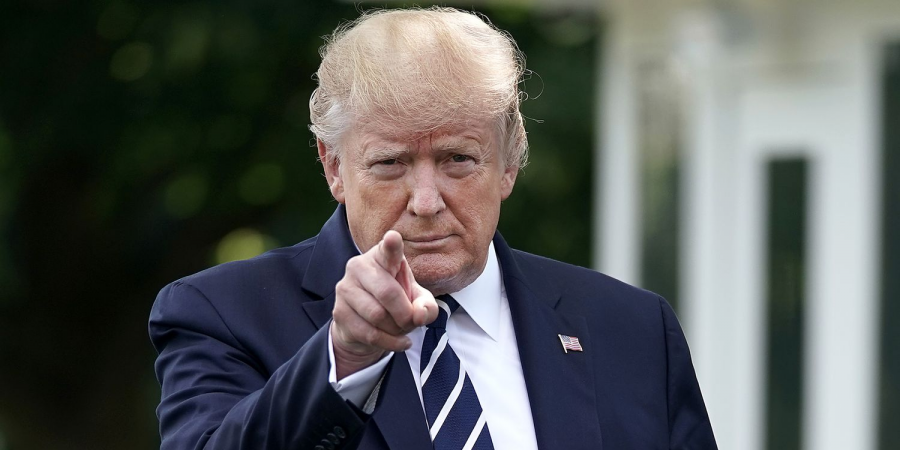

As Donald Trump has won the 2024 USA elections, there is a debate whether Trump 2.0 will be a boon or bane for America. Some see a Trump return as a necessary correction for America’s political, economic, and social issues, while others fear a second term could deepen polarization and disrupt democratic norms. Here's a balanced look at the arguments for and against "Trump 2.0" as a potential boon or bane for America.
Trump’s first term focused heavily on economic growth through tax cuts, deregulation, and encouraging domestic manufacturing. Proponents argue that a second term could further boost the economy by continuing these policies, potentially lowering unemployment and increasing opportunities in key sectors like energy, manufacturing, and technology. Supporters believe Trump’s commitment to an “America First” approach could reinvigorate domestic industries and reduce dependence on foreign manufacturing.
Trump’s hardline stance on immigration remains popular with a significant portion of Americans who are concerned about illegal immigration and its potential economic impact. Advocates argue that stricter border policies could relieve strains on social services, create a more secure environment, and ensure that immigration occurs through legal channels, benefiting both the economy and national security.
Unlike many of his predecessors, Trump displayed a preference for reducing America’s overseas military presence, a stance appreciated by those wary of prolonged foreign interventions. His approach, labeled as “America First,” focused on strengthening alliances only where necessary, potentially allowing for a more resource-focused and restrained foreign policy. Some argue that this could spare the nation unnecessary conflict while promoting domestic issues over foreign entanglements.
Trump’s first term saw a record number of conservative federal judges appointed, reshaping the judiciary for generations. Trump is expected to continue these conservative appointments, which supporters believe align with traditional American values. His approach appeals to those who believe the courts should take a more restrained approach in shaping societal norms and remain true to constitutional interpretations.
Trump’s polarizing presence has contributed to one of the most divided eras in American politics. Opponents argue that his rhetoric often alienates and stirs up conflict, which could exacerbate social and political divides. For critics, Trump 2.0 risks further alienating minority groups and intensifying tensions, potentially destabilizing the social fabric of the nation.
Many Americans worry about Trump’s approach to governance and his often-publicized disputes with federal institutions, such as the FBI, DOJ, and the intelligence community. Concerns about his handling of classified documents and his actions regarding the 2020 election, including the January 6 Capitol riot, make some skeptical about his respect for democratic norms. Critics worry that a second Trump term might weaken trust in these institutions and set a concerning precedent for executive power.
Trump’s focus on deregulation and energy independence often came at the expense of environmental protections. He rolled back numerous environmental regulations and withdrew the United States from the Paris Climate Agreement. For those concerned about climate change and environmental sustainability, a Trump 2.0 presidency may signal a return to policies that prioritize short-term economic gains over long-term environmental health, potentially affecting America’s position as a global leader in climate action.
Trump’s “America First” policies often strained relations with traditional allies and disrupted alliances such as NATO. Critics argue that Trump’s foreign policy may isolate the U.S. on the global stage, damaging its ability to lead on international issues like climate change, trade, and security. A second term could see a continuation of these tensions, with adversarial nations potentially benefiting from a fractured Western alliance.
For some Americans, Trump represents a figure who challenges the status quo and speaks directly to their frustrations with the establishment. For others, he represents a destabilizing force whose policies and actions threaten democracy and social cohesion.
In addition to these ideological divides, Trump’s second run is likely to highlight growing divides within the Republican Party itself. Establishment conservatives and Trump-aligned populists often find themselves at odds, creating a potentially fractured conservative coalition.
Whether Trump 2.0 would be a boon or bane for America largely depends on one’s perspective on issues like economic growth, social values, climate policy, and America’s role in global affairs. Supporters see him as a leader who can reignite the economy, secure borders, and streamline foreign policy. Critics worry that his return could further divide the country, weaken democratic institutions, and undermine America’s standing in the world. Regardless of one’s view, the implications of a Trump 2.0 presidency would likely resonate for years to come, shaping the future direction of the United States on multiple fronts.


